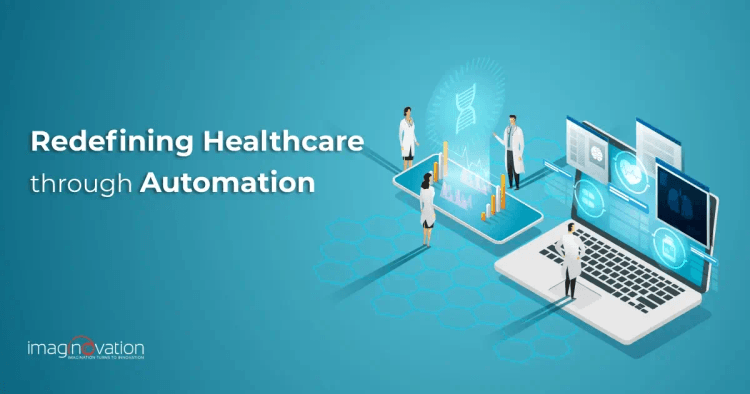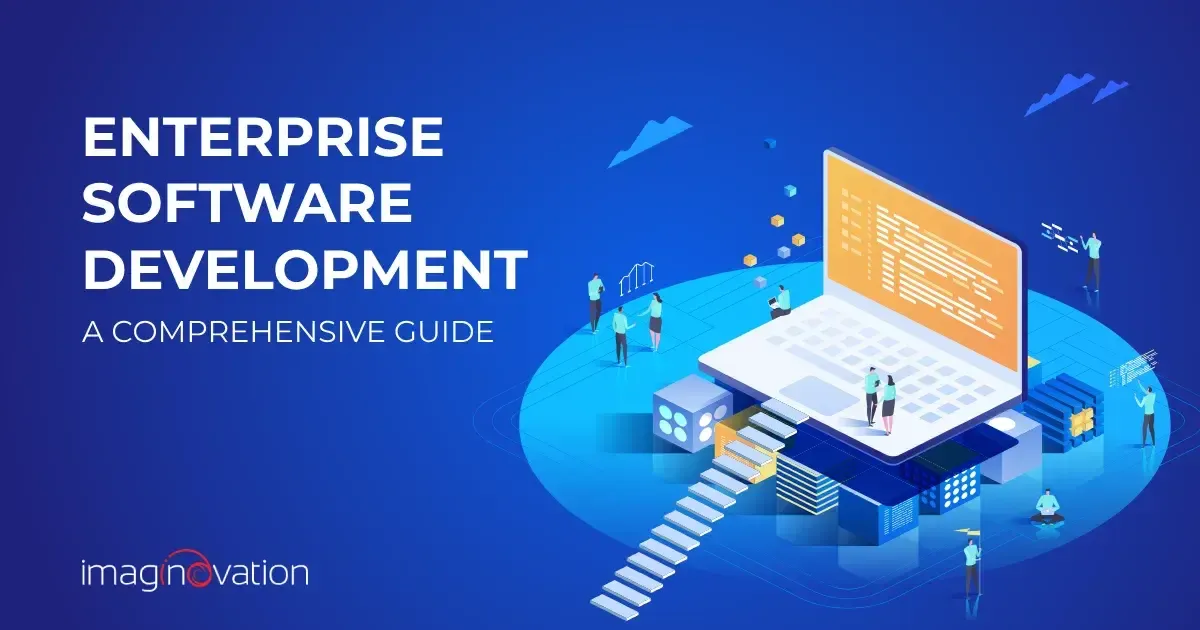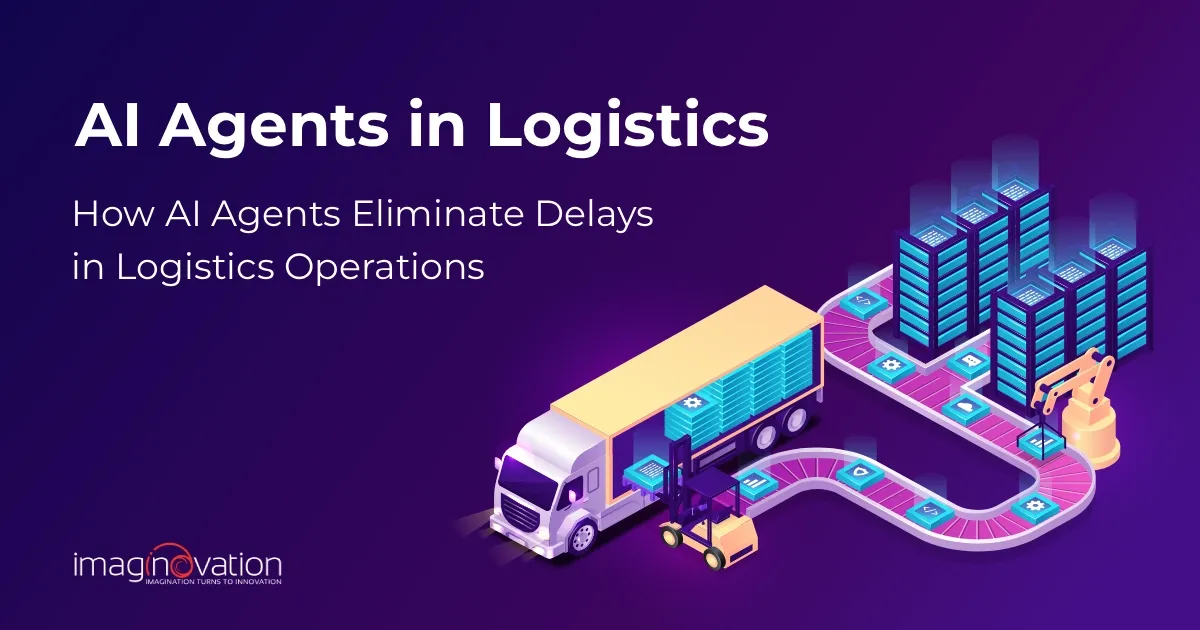To estimate the cost of building a website or an app, use our app cost calculator tool.
Today's world runs on automation - one of the industry's most transformative trends.
From manufacturing to finance, automation has revolutionized processes, enhancing efficiency and productivity.
In the realm of healthcare, too, this innovative technology holds immense potential to streamline administrative tasks, improve patient care, and optimize resource allocation.
Just think - automated appointment scheduling, automated diagnostics, automated billing, automated medication reminders, robotic surgeries, and whatnot!
Process automation is set to revolutionize the way healthcare is delivered.
In this blog, we'll take a look at the current state of healthcare and its challenges. We will also explore how automation can address various healthcare challenges.
Let’s read on!
The Current State of Healthcare and Its Challenges
Healthcare is a complex domain and is constantly growing and changing.
It has seen progress in medical research, diagnostics, and treatments, resulting in better patient outcomes.
However, there are also challenges that prevent the industry from delivering the best care possible.
Moreover, the changing government rules, the aftermath of the Covid-19 pandemic, technological advancements, and rising patient expectations have created a new environment that requires more than just patient care.
Let’s understand some of the key challenges the healthcare industry is currently facing:
1. Staff shortages & burnout
The healthcare industry is facing a big problem: not having enough staff. The COVID-19 pandemic has made it worse.
In the future, there will be more demand for doctors and registered nurses (RNs) than what's available.
By 2030, there could be a shortage of around 100,000 doctors, and we also need about 203,700 new RNs each year until 2026.
The pandemic showed the importance of having adequate healthcare workers for quality patient care.
Because of the shortage, healthcare professionals struggle to meet the increasing service demand. This shortage not only makes it difficult for people to receive care, but it also overburdens the existing healthcare workers, leading to burnout.
2. The rising cost of healthcare
The rising cost of healthcare is another long-standing issue.
Various stakeholders influence healthcare costs, including device manufacturers, drug companies, technology, and insurance providers.
The increasing cost of healthcare directly affects the revenue of healthcare companies and puts a strain on both patients and healthcare systems.
Higher costs discourage patients from getting necessary lab tests and follow-up visits, resulting in poorer patient outcomes.
3. Cybersecurity threats
Your patients trust you with their data, such as their medical records, payment info, etc. Protecting this data is of utmost importance, but cyberattacks are real threats.
The increased risk of cyberattacks puts patient data and your healthcare center's reputation at risk.
Cybersecurity issues can result in unauthorized access, theft, or even manipulation of sensitive patient data. This can lead to fraud, identity theft, and other malicious activities.
Furthermore, hackers may target healthcare systems and connected devices, potentially disrupting critical operations, causing downtime, and compromising patient care.
The rise in healthcare data breaches is concerning, with statistics showing an increase over the years.
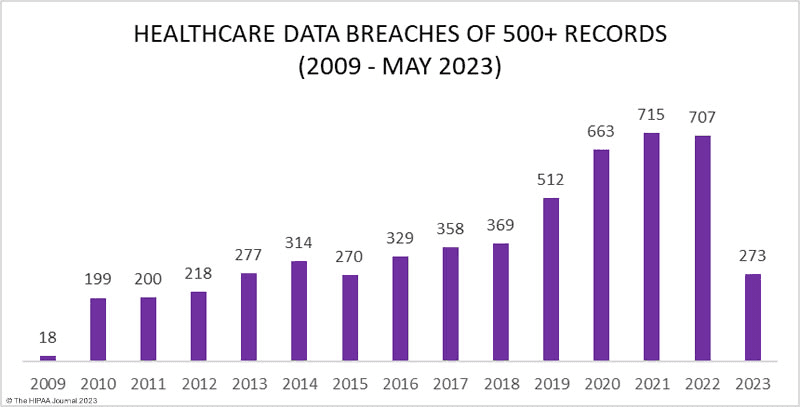
(Source)
4. Invoicing & payments processing
Many of us feel lost in the world of healthcare billing.
With all the medical jargon, complicated coverage rules, and constant changes, it's no surprise.
We're not alone - over 70% of patients feel completely confused when they try to understand their insurance explanation of benefits and figure out how much they need to pay for their bills.
Moreover, when you even try to manage your medical bills online, the portals rarely match your preferred payment methods. It can be frustrating, isn't it?
Late payments or missed payments thus are a common occurrence because there's no easy way for you to handle your bills effectively.
5. Staying up-to-date with medical advancements
This is a significant challenge for healthcare.
Why?
Because the field of medicine is constantly evolving, with new research studies, clinical trials, and breakthroughs happening regularly.
The problem is that these transformations are moving faster than hospitals can keep up.
It is becoming challenging for healthcare professionals to keep track of the vast amount of new information and incorporate it into their practice.
Additionally, the rapid pace of technological advancements in healthcare introduces new treatment options, diagnostic tools, and therapeutic approaches.
Healthcare providers must stay informed about these advancements to provide the best possible care to their patients.
6. Healthcare regulatory changes
Frequent regulatory changes impact healthcare companies in two ways: they increase the cost of healthcare services and create confusion among the public, which must be addressed properly to prevent lawsuits.
As technology advances quickly, it is essential to make timely reforms in healthcare laws.
However, healthcare companies must be prepared to handle the challenges accompanying these reforms.
7. Patient experience
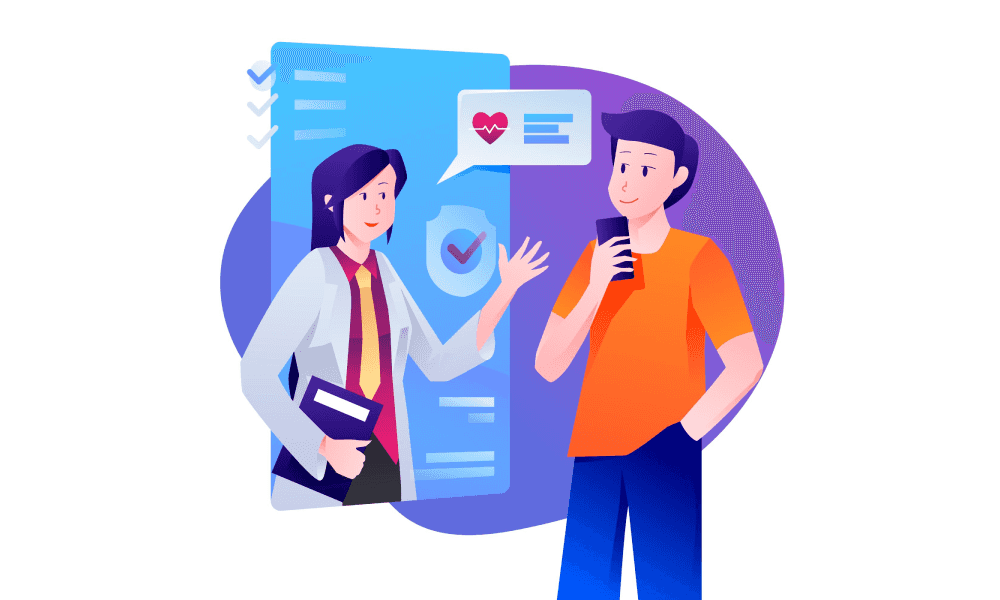
A positive patient experience improves care outcomes, retention rates, and profitability. Moreover, patients with good experiences are more likely to follow medical advice, leading to better outcomes and reducing malpractice risks.
But, creating an excellent patient experience in healthcare can be pretty challenging.
Firstly, healthcare providers often have limited time to deal with a large number of patients and heavy workloads. This can make it hard for them to give each patient the attention and personalized care they deserve.
Secondly, the healthcare system itself can be complex. Patients may find administrative processes, insurance requirements, and medical terminology confusing and frustrating. Trying to understand and navigate through these complexities isn’t always easy.
Understanding Automation in Healthcare
We have some interesting findings to share with you about the healthcare industry.
According to a recent study, many healthcare workers are feeling burned out, and one of the reasons is the amount of administrative tasks they have to do. The study shows they spend about 34 percent of their time on administrative work. That's a lot!
Another study focused on "Medical Error Reduction and Prevention" and discovered something alarming. Medical errors have become a leading cause of death in the USA, causing around 100,000 deaths every year.
These numbers show serious healthcare problems that healthcare organizations and policymakers can resolve by investing in new technologies, like automation. Automation improves the way care is delivered.
But what is healthcare automation?
Healthcare process automation is all about using software, robots, and wearable technologies to make day-to-day medical tasks easy, efficient, and more accurate.
Here's an example of how automation can help. Healthcare organizations can automate tasks like data entry and appointment scheduling with technology. This reduces the amount of administrative work staff members have to handle, giving them more time for essential tasks requiring human interaction or intervention.
Additionally, predictive analytics can be used to determine the optimal number of staff members needed at any given time, improving patient outcomes and reducing burnout.
Here are some automation technologies that can positively impact your healthcare services.
1. Artificial Intelligence (AI)
Artificial intelligence, or AI, is one of the leading automation technologies. Artificial intelligence is widely used to improve the efficiency of administrative applications. Some areas of application of AI in healthcare include computer-aided diagnosis, RCM (Revenue Cycle Management), AI-powered chatbots, faster billing, etc.
2. Machine Learning (ML)
ML helps analyze patient data, including demographics, medical history, and lifestyle factors, to predict the likelihood of developing specific diseases or conditions. Personalized medicine is another area where ML algorithms help. They can determine the most effective treatment options by analyzing patient characteristics, genetic information, and treatment response data.
3. Robotic Process Automation (RPA)
RPA in healthcare can automate repetitive administrative tasks such as front office operations, patient interaction, claims processing, and billing, freeing up healthcare staff to focus on patient care. RPA bots also automate appointment scheduling processes, reducing manual efforts and ensuring efficient utilization of healthcare resources.
4. Blockchain
Blockchain provides a secure and tamper-resistant platform for storing and sharing sensitive healthcare data. Moreover, blockchain-based systems can also provide patients with control over their medical records, allowing them to securely access and share their health information with healthcare providers when needed.
5. The Internet of Things (IoT)
The IoT connects devices and sensors to the Internet, enabling them to share data and communicate.
Wearable IoT devices and sensors can collect real-time data, allowing healthcare providers to monitor patient's conditions remotely, detect abnormalities, and intervene promptly.
IoT solutions can also enhance patient safety and security. For instance, IoT-enabled smart alarms can quickly alert caregivers in case of emergencies or falls.
The Role of Automation in Addressing Healthcare Challenges
Automation in healthcare plays a crucial role in addressing various challenges the industry faces. By leveraging technologies like AI, ML, and RPA, healthcare organizations can streamline their operations, improve efficiency, and enhance patient care.
The healthcare industry can overcome its challenges through automation and pave the way for a more effective, patient-centric, and sustainable healthcare system.
Let’s explore how automation is transforming healthcare.
Automation brings down costs.
Rising cost is a challenge many healthcare organizations face, but there's good news – automation can be a game-changer in cost reduction.
One of the reasons automation is so effective in reducing costs is that it helps minimize errors. By automating tasks, the chances of mistakes or oversights are significantly reduced. This means less time and resources wasted on fixing errors.
Automation also enhances productivity. With repetitive tasks taken care of by automation systems, healthcare professionals can focus their valuable time and skills on more important and complex aspects of their work. This boosts productivity and allows them to accomplish more within their working hours.
Another cost-saving benefit of automation is the reduction of overtime. By streamlining processes and eliminating time-consuming manual tasks, healthcare professionals can complete their work within regular shifts. This reduces the need for costly overtime hours and helps create a healthier work-life balance for employees.
Automation addresses staffing shortages and burnout.
Staffing shortages and burnout issues can take a toll on healthcare professionals and affect the quality of care. Thankfully, automation offers some promising solutions.
Automation helps with staffing shortages by streamlining workflows and increasing efficiency. You can save valuable time by automating repetitive tasks like appointment scheduling and documentation. Automation allows you to do more with your resources, reducing the strain caused by staffing shortages.
Automation also plays a crucial role in reducing burnout among healthcare professionals. Burnout often occurs when healthcare workers are overwhelmed with administrative tasks and spend less time on patient care. By automating these administrative processes, healthcare professionals can focus their time and energy on what truly matters – taking care of patients. This shift from mundane tasks to meaningful interactions can help alleviate burnout.
Automation brings paperless operations.
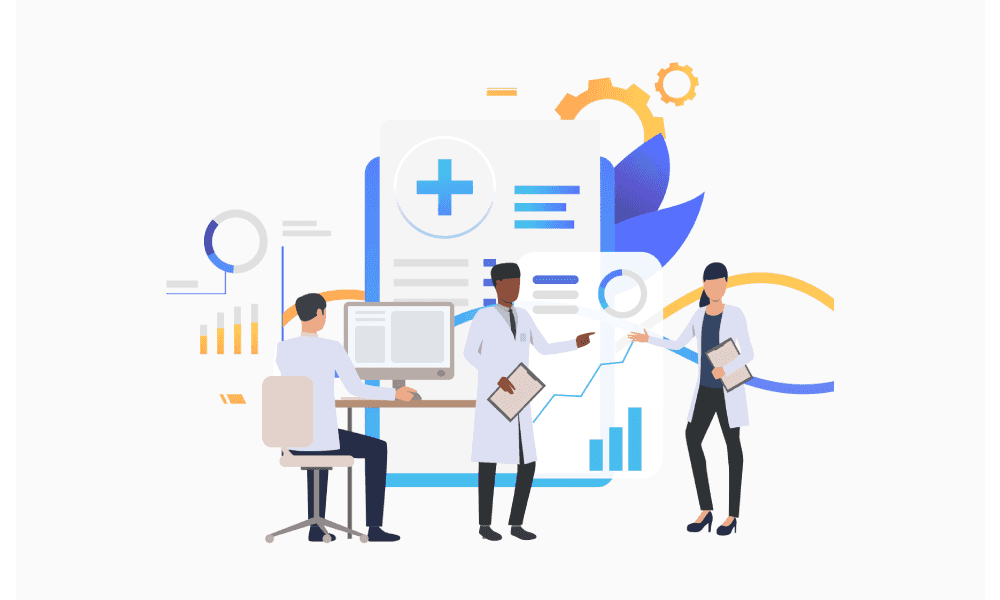
Healthcare institutions face challenges when it comes to managing all the paperwork. Referrals, slips, reports, and files can pile up, creating logistical, administrative, and financial burdens. But here's where healthcare automation steps in to save the day!
By embracing automation, you can digitize and standardize your documents. This means that tasks like cataloging and ensuring consistency become much easier. Plus, automation allows the use of digital signatures, eliminating the need for manual signing and making the process more efficient.
In addition, with healthcare automation, documents can be shared in the cloud. This means other healthcare staff members can access the necessary files easily and quickly. Imagine how these speed up the patient care process! No more searching for physical files or waiting for documents to be transferred manually.
Automation enhances healthcare accessibility.
Another challenge in healthcare is ensuring access to quality services, especially for underserved populations in remote areas.
Automation can play a significant role in bridging this gap and making healthcare more accessible for everyone.
One way automation helps is through telemedicine and telehealth solutions. Imagine having video consultations with healthcare professionals and receiving medical advice without needing to travel to a healthcare facility physically. Automation makes this possible, breaking down geographical barriers and providing care to those who may have limited mobility or live in areas with limited healthcare infrastructure.
With automation, we can improve health outcomes and reduce healthcare disparities by ensuring that quality care is available to everyone, no matter where they are.
Automation minimizes errors
Silly mistakes in healthcare can have life-threatening consequences or cost you a fortune.
We're all human, and healthcare workers sometimes make errors due to inattentiveness or fatigue. However, automation can significantly reduce these risks.
By minimizing the involvement of humans in certain processes, automation helps to reduce errors and enhance the effectiveness of treatments. Automated systems can deliver more accurate and efficient care, ensuring better outcomes for patients.
Automation is not limited to just medical procedures. It's also transforming administrative operations in healthcare. Sharing data between multiple systems has never been easier. This streamlined process provides complete insight into your operations, leaving no room for blunders.
Automation engages patients
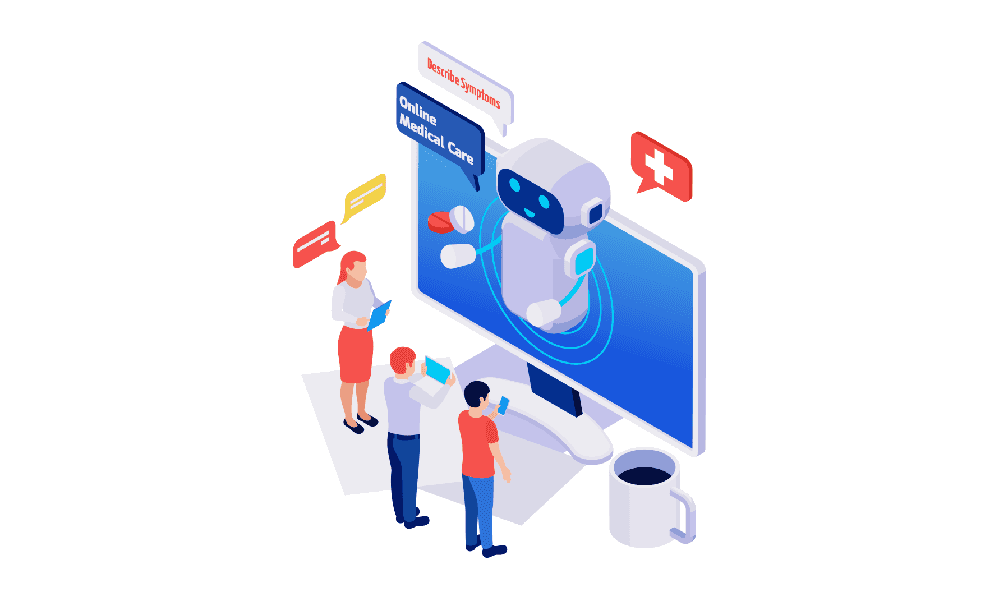
Healthcare organizations are facing tougher competition in today's landscape. Patients now expect customer service that matches their experience with other consumer brands. To attract and retain patients, it's important to address this expectation.
One of these expectations is the desire for a self-service approach. Patients want the convenience of resolving their questions, issues, and concerns. They want to be able to download their immunization records, book appointments, make payments, or check their insurance status whenever and wherever they find it most convenient.
Hospitals can allow patients to opt-in for text or email communications to cater to these preferences.
Additionally, AI-based chatbots can be crucial in resolving customer service inquiries. These chatbots utilize previously collected data to provide accurate and timely responses, reducing the need for extensive customer service resources.
Automation leads to effective data management.
By embracing automation, you can overcome the challenges associated with data sharing, enhance coordination between departments, and ultimately deliver better patient care.
Consider the treatment workflow when a patient's diagnosis or treatment involves multiple departments. Data transfers then create bottlenecks, slowing down the process and impacting patient care.
But with automation, every device in your healthcare facility can be connected to the same network, allowing information from one device to be accessible from another.
Transform Your Healthcare Business with Automation
The transformative power of automation in healthcare cannot be overstated.
It can streamline healthcare processes, improve patient care, boost operational efficiency, and drive sustainable growth.
Embracing automation is not just an option today but necessary for healthcare organizations looking to thrive in a rapidly evolving landscape.
So don't miss out on the advantages of automation to your healthcare business, and contact us.
Take the leap and transform your healthcare business with automation. The future of healthcare awaits, and automation is the key to unlocking its full potential.
Imaginovation can truly revolutionize your healthcare business.
Imaginovation is an award-winning web and mobile app development company with vast experience crafting remarkable digital success stories for diverse companies. Let's talk.





